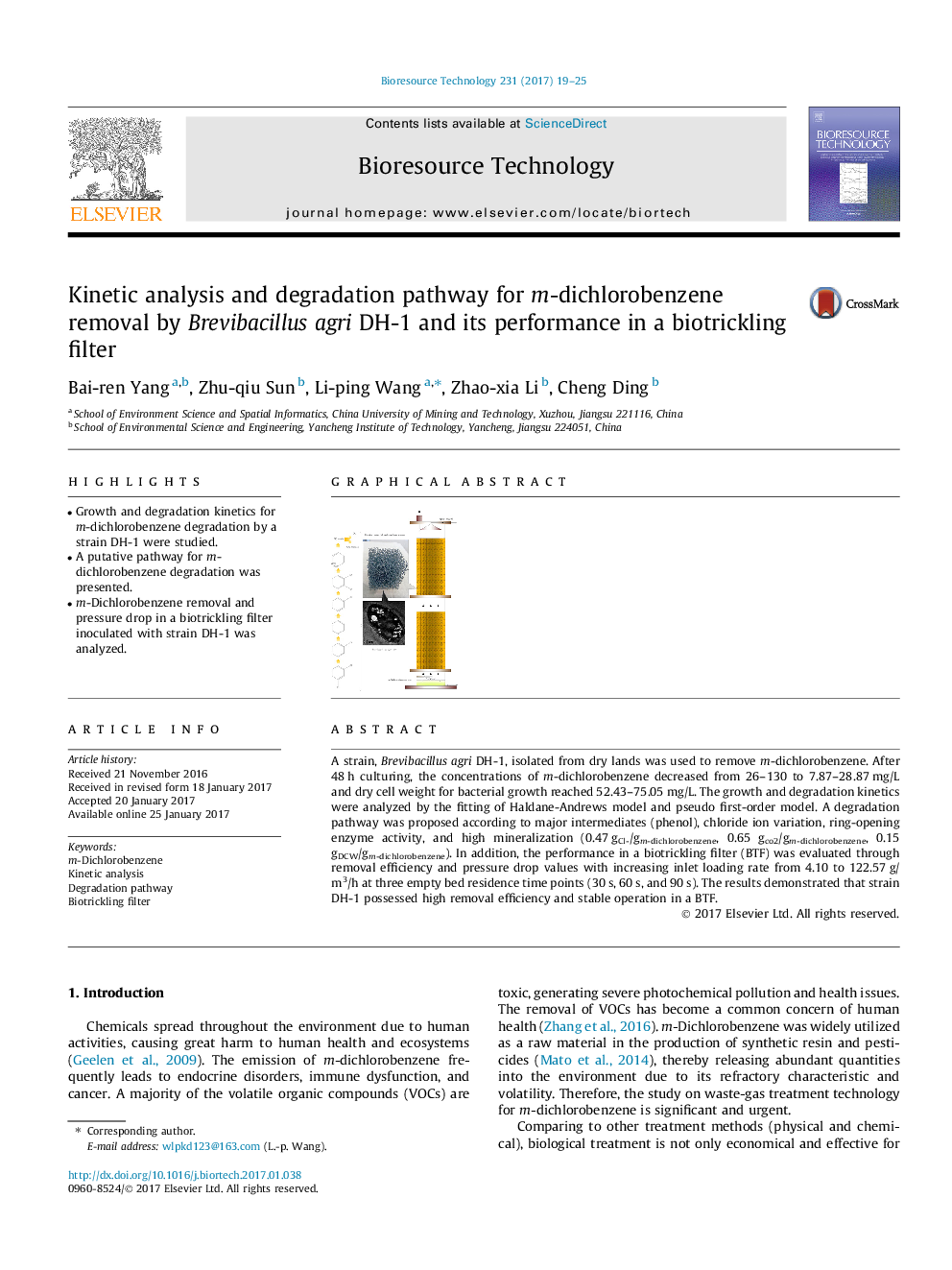| کد مقاله | کد نشریه | سال انتشار | مقاله انگلیسی | نسخه تمام متن |
|---|---|---|---|---|
| 4997407 | 1459912 | 2017 | 7 صفحه PDF | دانلود رایگان |

- Growth and degradation kinetics for m-dichlorobenzene degradation by a strain DH-1 were studied.
- A putative pathway for m-dichlorobenzene degradation was presented.
- m-Dichlorobenzene removal and pressure drop in a biotrickling filter inoculated with strain DH-1 was analyzed.
A strain, Brevibacillus agri DH-1, isolated from dry lands was used to remove m-dichlorobenzene. After 48Â h culturing, the concentrations of m-dichlorobenzene decreased from 26-130 to 7.87-28.87Â mg/L and dry cell weight for bacterial growth reached 52.43-75.05Â mg/L. The growth and degradation kinetics were analyzed by the fitting of Haldane-Andrews model and pseudo first-order model. A degradation pathway was proposed according to major intermediates (phenol), chloride ion variation, ring-opening enzyme activity, and high mineralization (0.47Â gCl-/gm-dichlorobenzene, 0.65 gco2/gm-dichlorobenzene, 0.15 gDCW/gm-dichlorobenzene). In addition, the performance in a biotrickling filter (BTF) was evaluated through removal efficiency and pressure drop values with increasing inlet loading rate from 4.10 to 122.57Â g/m3/h at three empty bed residence time points (30Â s, 60Â s, and 90Â s). The results demonstrated that strain DH-1 possessed high removal efficiency and stable operation in a BTF.
73
Journal: Bioresource Technology - Volume 231, May 2017, Pages 19-25